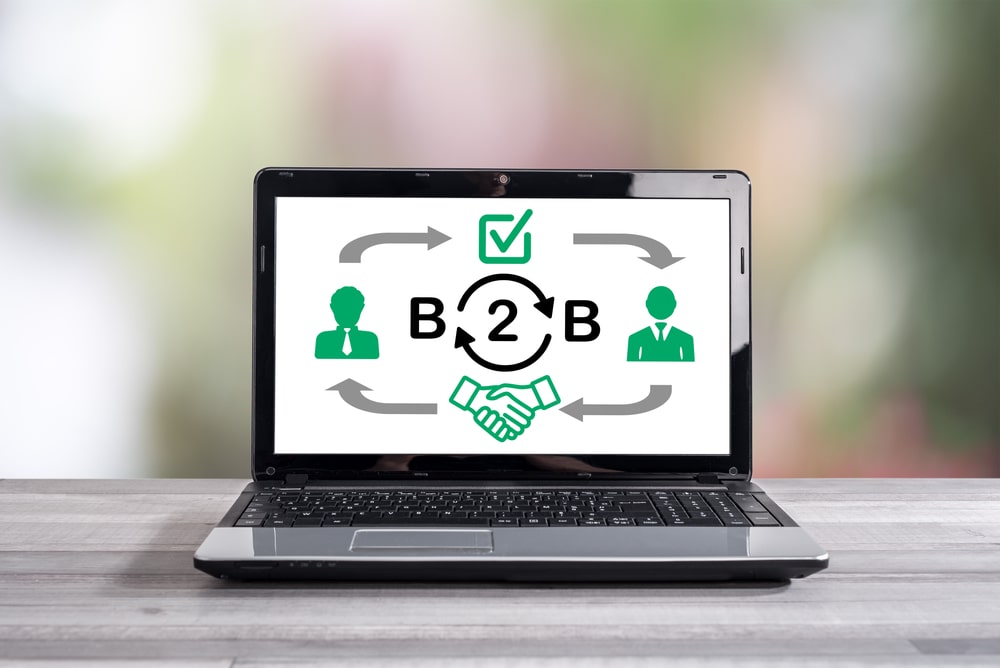Emerging trends, technologies, and consumer behaviors continuously shape the B2B marketing landscape. As we look forward, businesses are poised to navigate a dynamic environment driven by innovation and adaptation. The future of B2B marketing promises to be exciting and challenging from the integration of advanced technologies. In this article, we’ll look at the major trends that will reshape B2B marketing strategies in the upcoming years.
Importance of Staying Updated with B2B Marketing Trends
Maintaining a competitive edge and driving success in today’s dynamic marketplace is paramount for businesses. Staying updated with the B2B marketing trends, allows businesses to anticipate changes in the market, ensuring they remain relevant and ahead of the competition. By staying informed about emerging trends in B2B marketing, businesses can identify new opportunities, optimize their approach, and stay ahead of competitors.
Embracing updates enables companies to maximize their lead-generation efforts and achieve their business objectives more efficiently. For a B2B marketing agency to remain competitive and drive measurable results for its clients, it is essential that be aware of marketing trends.
11 B2B Marketing Trends to Follow for 2024
Let’s explore 11 B2B marketing trends that businesses should follow closely to navigate the evolving landscape and capitalize on new opportunities for growth and innovation.

1. Personalization in B2B Marketing
As businesses strive to forge deeper connections with their target audience, personalized marketing efforts become increasingly paramount. In B2B marketing, personalization helps businesses stand out and empowers them to deliver relevant and meaningful experiences that resonate more profoundly with the audience. Therefore, personalization remains a pivotal trend that B2B marketers must prioritize to effectively engage their audience and drive success in years ahead.
2. Rise of Account-Based Marketing
The rise of Account-Based Marketing (ABM) is a significant trend with far-reaching implications. As businesses seek more focused and personalization approaches to engage their key account, ABM has emerged as a strategic framework to help firms. With ABM marketers can customize their content, messaging, and strategies to each client’s specific needs and challenges. The rise of account-based marketing represents a fundamental shift in B2B marketing strategies, empowering businesses to achieve greater accuracy, effectiveness, and ROI in their marketing attempt.
3. Google Will be More Volatile
The volatility of Google’s algorithms is poised to have a significant impact on digital strategies in the coming years. As Google continues to refine and update its algorithms, marketers need to prepare for more volatility in search ranks and visibility. For businesses, this volatility presents opportunities as well as obstacles. B2B marketers must remain alert, and continuously adjust their strategies to keep their websites visible in search results and attract organic traffic. The progressively volatile landscape of Google’s algorithms will be indispensable for B2B marketers to outpace the competition and optimize their online presence.
4. Companies Will Invest More in SEO
SEO becomes an essential component of a business marketing strategy as they depend on digital channels to engage with their target audience. Understanding the potential of organic search traffic to generate quality leads and conversions, businesses are dedicating more resources. SEO for B2B companies, can improve their website’s ranking for relevant keywords, attract targeted traffic, and establish themselves as authoritative voices in their respective industries. For B2B companies to stay ahead of the competition and maintain a competitive edge, they must invest in SEO.
5. Marketing Automation to Speed up Time-consuming Tasks
Marketing automation is becoming a growing trend. Marketing automation tools empower companies to automate repetitive and time-consuming tasks like email marketing, lead nurturing, and campaign management. By utilizing automation, B2B marketers can save valuable time and resources, enabling them to concentrate on more strategic initiatives. It becomes clear that marketing automation is useful for B2B companies trying to maintain their competitive advantage, drive growth, and provide their audience with exceptional experiences.
6. B2B Brands Produce More Video Content
The production of video content has emerged as a prominent strategy for brands looking to engage their audience effectively. Video content is increasingly gaining traction in the B2B space as businesses recognize its power to captivate and educate their target audience. Whether through product demos, client testimonials, or industry insights, video content allows B2B brands to convey complex information in a visually simple format. The increasing production of video content by B2B brands highlights the importance of adapting to changing customer preferences and using innovative content marketing approaches.
7. Influence of Social Media in B2B Marketing
Social media platforms has emerged as valuable tools for B2B marketers aiming to connect with their target audience more meaningfully and interactively. There is no denying for influence of social media marketing for B2B companies. B2B enterprises may engage with industry decision-makers, promote thought leadership content, and share their expertise, by using platforms like FB, Twitter, LinkedIn, etc. Social media tools allow B2B companies to gain valuable insights into customer sentiment, industry trends, and competitive intelligence, enabling them to refine their marketing strategies.
8. Artificial Intelligence (AI) Integration
B2B marketers can now leverage AI-powered solutions to automate repetitive operations, personalize experiences at scale, and gain deeper insights into customer behavior. Integrating Artificial Intelligence (AI) represents a transformative trend that promises to revolutionize how businesses engage with their audience. Businesses may optimize their marketing strategies using AI integration, which powers chatbots and predictive analytics. By harnessing the power of AI, B2B marketers can unlock new opportunities for innovation, improve targeting accuracy, and deliver impactful campaigns.
9. Making Data-Backed Decisions
Making data-backed decisions has become a fundamental practice for driving success and achieving measurable results. B2B marketers can gain important insights into customer behavior, preferences, and interactions with their brands, by utilizing data analytics tools and technology. These insights enable marketers to make informed decisions regarding their marketing strategies, campaign optimization, and resource allocation. B2B companies may reduce risks, take advantage of opportunities, and ultimately provide better results and ROI by making data-driven decisions.
10. Companies Will Invest More in Outsourcing
In an environment where organizations are evolving quickly and need to remain flexible and competitive, outsourcing certain aspects of marketing is gaining popularity. Businesses can access specialized expertise, resources, and technology by outsourcing B2B marketing services without the need for an initial significant investment. By partnering with experts, B2B companies can leverage the knowledge and experience of professionals who specialize in various aspects of marketing. Businesses may adjust to changing market conditions and grow their marketing initiatives as necessary, with the flexibility, scalability, and cost-effectiveness outsourcing offers.
11. Collaboration Between Sales and Marketing Teams
Fostering collaboration between sales and marketing teams emerges as a crucial strategy for driving alignment and maximizing effectiveness. The B2B buying journey becomes more complex and customer-centric, and the need for seamless collaboration between these two functions is increasing. By working together towards common goals, sales and marketing teams can ensure a unified approach to lead generation. Collaboration enables the team to exchange valuable insights, align messaging and tactics, and deliver a cohesive experience for prospects and customers.
Conclusion
Looking ahead to 2024 and beyond, it’s clear that B2B marketing will continue to evolve rapidly. Businesses may put themselves in a successful position in the dynamic B2B landscape, by staying updated with the latest trends and adopting creative tactics. Continuously monitor industry trends, and adapt their strategies to meet the evolving needs and preferences of their target market.






